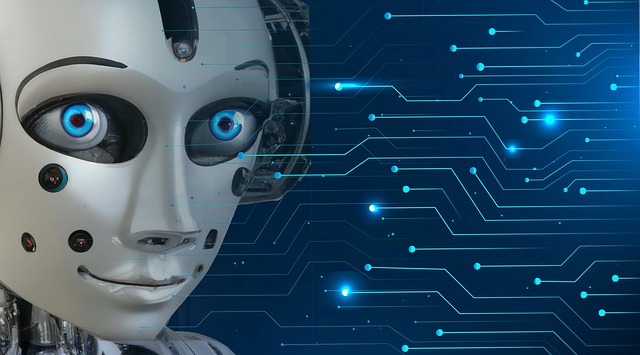OChatbots, powered by AI and NLP, have transformed online interactions with services ranging from info retrieval to task execution. While they offer enhanced user experiences through personalization, they face challenges like knowledge gaps due to limited data and ethical concerns such as privacy and bias. Responsible development and deployment require addressing these issues to balance automation benefits with crucial considerations for daily routines across sectors.
“Discovering the potential of ochatbots: An in-depth exploration awaits. In an era defined by digital transformation, artificial intelligence (AI) chatbots have emerged as versatile conversational agents, reshaping how we interact with technology. This article delves into the capabilities and limitations of ochatbots, tracing their evolution from niche tools to integral parts of our daily lives. We’ll navigate opportunities and challenges, examining how these intelligent assistants are redefining communication while exploring potential avenues for future growth.”
- Understanding oChatbots: Their Capabilities and Limitations
- The Rise of AI-Powered Conversational Agents
- Integrating oChatbots into Everyday Life: Opportunities and Challenges
Understanding oChatbots: Their Capabilities and Limitations

OChatbots, powered by artificial intelligence, have transformed online communication, offering an array of capabilities that cater to diverse user needs. These virtual assistants can engage in natural language conversations, providing information, answering queries, and performing tasks with remarkable efficiency. They excel at understanding user inputs, generating contextually relevant responses, and adapting to various conversational scenarios.
However, despite their advanced features, oChatbots also have limitations. They rely on pre-trained models and available data, which may result in knowledge gaps or inaccuracies. Contextual understanding can sometimes be challenging, leading to misinterpretations or irrelevant replies. Furthermore, ethical considerations, such as data privacy and bias in training data, are essential aspects that require careful attention to ensure responsible AI chatbot development and deployment.
The Rise of AI-Powered Conversational Agents

In recent years, we’ve witnessed a remarkable surge in the popularity and adoption of AI-powered conversational agents, commonly known as chatbots. This transformative trend is reshaping how businesses interact with their customers and how individuals engage with technology. Chatbots are no longer a futuristic concept; they have become an integral part of our digital landscape, offering instant support, personalized experiences, and efficient solutions to everyday problems.
The rise of AI chatbots can be attributed to significant advancements in natural language processing (NLP) and machine learning technologies. These breakthroughs enable chatbots to understand human language nuances, learn from interactions, and provide contextually relevant responses. As a result, oChatbots have evolved from simple rule-based systems to sophisticated AI assistants capable of engaging in complex conversations, anticipating user needs, and delivering tailored results, making them an indispensable tool for modern businesses.
Integrating oChatbots into Everyday Life: Opportunities and Challenges

Integrating AI chatbots, like oChatbots, into everyday life presents a multitude of opportunities, enhancing convenience and efficiency in various sectors. These intelligent assistants can handle customer service inquiries, schedule appointments, provide personalized recommendations, and even assist in complex decision-making processes. Their ability to learn from interactions and adapt to user needs makes them versatile tools for enhancing user experiences.
However, challenges also exist. Privacy and data security are paramount concerns as oChatbots process sensitive information. Ensuring transparency and ethical use of data is crucial. Additionally, the potential for misinformation and bias in chatbot responses highlights the need for rigorous testing and human oversight. Balancing the benefits of enhanced automation with these considerations is essential to creating a harmonious integration of AI chatbots into our daily routines.
AI chatbots, or ochatbots, have emerged as powerful tools, transforming the way we interact with technology. From understanding their capabilities and limitations to their growing integration into daily life, these virtual assistants offer immense potential. However, navigating their challenges requires careful consideration. As ochatbots continue to evolve, striking a balance between innovation and responsible development is crucial to ensure they enhance our lives without compromising privacy or accuracy.
